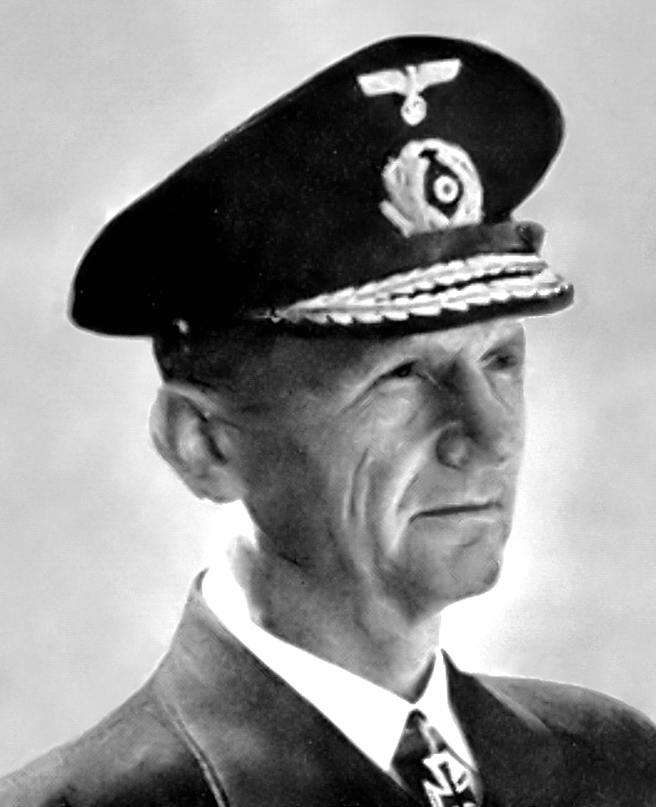Naval High Command/General Service Dept/
Ref. No. 156/44/S.O. only
Top Secret
S.O. ONLY COPY No. 91 BY HAND OF OFFICER ONLY.
Admiral of the Fleet Doenitz
Final address at the meeting of Commanders of the Navy in Weimar on Friday 17th December 1943.
I am a firm adherent of the idea of ideological education. For
54
[>-443
[>-443
what is it in the main? Doing his duty is a matter of course for the soldier. But the whole importance, the whole weight of duty done, are only present when the heart and spiritual conviction have a voice in the matter. The result of duty done is then quite different to what it would be if I only carried out my task literally, obediently and faithfully. It is therefore necessary for the soldier to support the execution of his duty with all his mental, all his spiritual energy, and for this his conviction, his ideology, are indispensable. It is therefore necessary for us to train the soldier uniformly, comprehensively, that he may be adj usted ideologically to our Germany. Every dualism, every dissension in this connection, or every divergence, or unpreparedness, imply a weakness in all circumstances. He in whom this grows and thrives in unison is superior to the other. Then indeed the whole importance, the whole weight of his conviction comes into play. It is also nonsense to say, perhaps, that the soldier or the officer must have no politics. The soldier embodies the state in which he lives, he is the representative, the articulate exponent of this State. He must therefore stand with his whole weight behind this State.
We must travel this road from our deepest conviction. The Russian travels along it. We can only maintain ourselves in this
war if we take part in it with holy zeal, with all our fanaticism. * * * * * * *
Not I alone can do this, but it can only be done with the aid of the man who holds the production of Europe in his hand, with Minister Speer. My ambition is to have as many warships for the Navy as possible, so as to be able to fight and to strike. It does not matter to me who builds them.
Extracts from a speech, on the importance of political-ideological training, and the soldier's duty to "stand with his whole weight" behind the German state, and Doenitz's desire to have as many warships as possible, noting "It does not matter to me who builds them."
Authors
Karl Doenitz (admiral; submarine commander (1939-43; naval commander (1943-45))
Karl Doenitz
German admiral, supreme commander of the Navy, head of state and convicted war criminal (1891-1980)

- Born: 1891-09-16 (Grünau) (country: German Empire; located in the administrative territorial entity: Kingdom of Prussia)
- Died: 1980-12-22 1980-12-24 (Aumühle) (country: West Germany; located in the administrative territorial entity: Schleswig-Holstein)
- Country of citizenship: Germany
- Occupation: autobiographer; military officer; politician; soldier (period: 1910-01-01 through 1918-01-01, 1920-01-01 through 1945-01-01)
- Member of political party: Nazi Party
- Participant in: Nuremberg trials (charge: war crime, war of aggression; defender: Otto Kranzbühler; role: defendant)
- Military rank: Admiral (period: 1942-03-14 through 1943-01-30); Commodore (period: 1939-01-28 through 1939-10-01); Fregattenkapitän (period: 1933-10-01 through 1935-10-01); Fähnrich zur See (period: 1911-04-15 through 1913-09-27)
- Military branch: German Navy; Imperial German Navy (since: 1910-04-01); Kriegsmarine (since: 1935-06-01)
Date: 17 December 1943
Literal Title: Admiral of the Fleet Doenitz[.] Extracts from final address at the meeting of Commanders of the Navy in Weimar on Friday 17th December 1943.
Defendant: Karl Doenitz
Total Pages: 1
Language of Text: English
Source of Text: Nazi conspiracy and aggression (Office of United States Chief of Counsel for Prosecution of Axis Criminality. Washington, D.C. : U.S. Government Printing Office, 1946.)
Evidence Code: D-443
Citation: IMT (page 2643)
HLSL Item No.: 452868